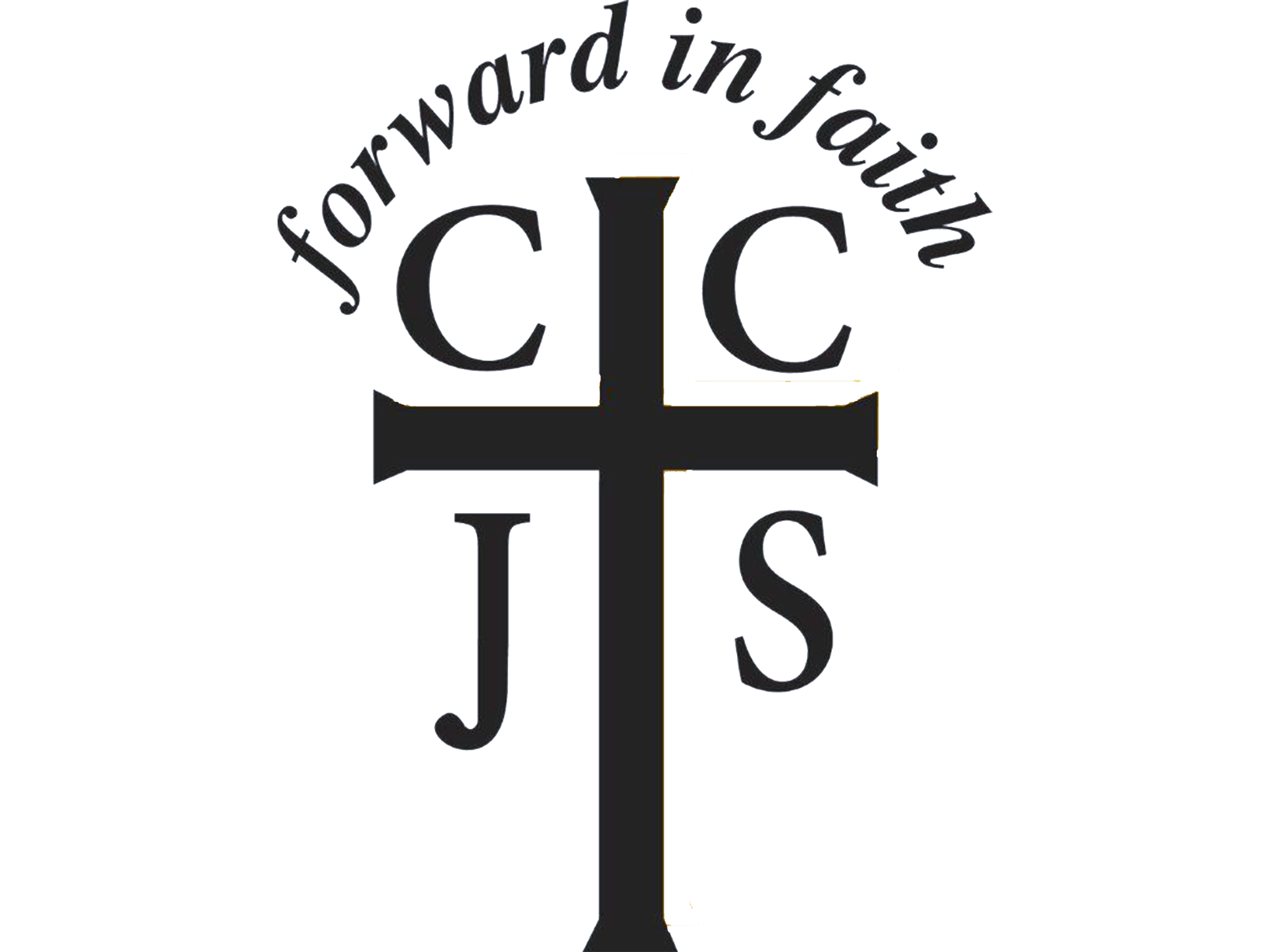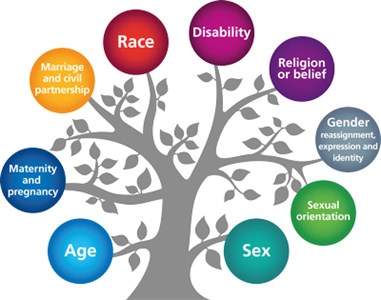
Cheadle Catholic Junior School
Protected Characteristics
Protected Characteristics

It is against the law to discriminate against someone because of:
- age
- disability
- gender reassignment
- marriage and civil partnership
- pregnancy and maternity
- race
- religion or belief
- sex
- sexual orientation
These are called Protected Characteristics. In UK law, individuals are protected under the Equality Act 2010 from these types of discrimination.
As a Catholic school we strive to be a haven of respect and custodians of the true dignity of each human being. Catholic schools are welcoming places to pupils and members of staff from all faiths and none.
We encourage, celebrate and value the diversity of our community. We actively promote the principle of equality for all. We aim to ensure that everyone within our community is treated fairly, with respect and dignity. We seek to eliminate any form of inequality or discrimination.
Pope Francis speaks eloquently on the matter of equality: “The Church does not exist to condemn people but to bring about an encounter with the visceral love of God’s mercy. For the Church to offer God’s mercy it must ‘go outside and look for people where they live, where they suffer and where they hope’ The enemy of mercifulness is self-righteousness.”
Life to the Full – our Curriculum Programme for Relationship and Health Education.
We believe that all human life is sacred and that everyone should have the opportunity to live life to the full. We use the “Life to the Full” Programme to deliver some of our equality curriculum.
From the outset, and at all stages of teaching, the core principle on which the Life to the Full programme is based is that we are ‘created, chosen and loved by God’; our equality is ultimately derived from the value we have in God’s eyes as beloved sons and daughters, and we are called to love God, love others and show God’s mercy in our actions. Examples of where this core principle is lived out are too numerous to list because it is integral to every teaching from Year 3 through to Year 6, articulated in age-appropriate ways at the various stages throughout the programme. This is the foundation on which any teaching about the Protected Characteristics is based.
Children will learn about Protected Characteristics developmentally, through primary and continue when they leave Cheadle Catholic Junior and enter into secondary education. Our delivery has to be age-appropriate and therefore some of the more detailed and challenging aspects of learning in this area is left to secondary schools when children will be developmentally ready to have a full understanding. In other words, primary schools do not have to teach about the protected characteristics in their entirety; they are, instead, laying strong, age-appropriate foundations for a fully-realised curriculum in later years.
Our focus has been to inform, present and explain legal rights, underline the fundamental dignity and worth of the person, and outline the erroneous nature of all unjust discrimination. At the same time, in age-appropriate ways, the programme articulates the teaching of the Catholic Church, with especial regard to relationships, sex and marriage.
The programme for primary schools addresses the protected characteristics in the following ways:
Age:
The subject of age, and the dignity of the person at all ages, is explored in the unit Life Cycles (All Key Stages, Module 1 Unit 4). Within these lessons, the programme teaches about the natural progress of life, and teaches that death is part of God’s plan for us. Our reading spine explores stereotypes and discrimination relating to age.
Disability:
We have many learning opportunities throughout our curriculum to discuss disability, from learning about the Paralympics to discussing disability and learning needs in our assemblies. Our reading spines explores visible and hidden diabilities and discrimination on this basis..
Gender reassignment:
The subject is not currently explored in Life to the Full at primary level. Rather, the programme provides foundational language about our core identity as children of God to enable us to address specific issues with children and their families.
Marriage and Civil Partnership:
The session“Family, Friends and Others” (LKS2 Module 2.2.1) explore different family structures. They provide opportunities for children to share news about their own family structure in a non-judgemental forum and also provide opportunities for discussion about the different family structures given in the various stories and scenarios. The decision on if and when to include same-sex partnerships, single-parent families or non-married parents within these discussions is discussed as and when appropriate to the learning intention of the lesson or when needed; however, the foundation has been laid for a healthy conversation on these matters in these sessions.
In the Paradise Street dramas (UKS2 Module 1), various family structures are represented through the characters in the films and there is discussion about specific family structures, such as families with ‘two mums and two dads’ in “Gifts and Talents” KS2 Module 1.2.1.
Pregnancy and maternity:
Pregnancy is explored in age-appropriate ways throughout the primary schools’ programme in the unit Life Cycles (All Key Stages, Module 1 Unit 4)
Race:
From the outset within the design of the programme, Ten Ten have been mindful of ensuring racial representation in our stories, dramas, appendices, scenarios and imagery. Our curriculum explores racism and racial equality through Black History Month and Holcoast Memorial. Our Reading spine explores apartheid, racism, xenophobia and other linked themes.
Religion and belief:
Our pupils come to a deeper understanding of other world religions through our Come and See RE programme. They will study a world religion each Autumn term, compassion towards and understanding of others is a constant theme of our learning programme. We have parents who have different faiths and beliefs and we invite them into school to share their faith stories and rituals. We visit places of worship- a virtual mosque tour, Rabbi visit and paired work with our local Jewish school.
Sex:
Throughout the primary schools’ programme, the teaching, stories, videos and image content establish an understanding of the equality of men and women, boys and girls. For example, in the unit “Me, My Body, My Health” (All Key Stages, Module 1, Unit 2) the discourse about the physical differences between boys and girls is matched by teaching about gender equality and dispelling gender stereotypes; our core reading spine also further explores gender stereotyping and discrimination upon the basis of sex.
Sexual orientation:
Attraction to the opposite sex is touched upon in UKS2 Module 1 within the ‘Paradise Street’ series as part of a discussion around emotional changes. However, sexual attraction as a specific subject is not addressed as part of the Life to the Full programme. If asked, class teachers would factually discuss same-sex attraction, that there are many same-sex couples in society and that they can form loving relationships.